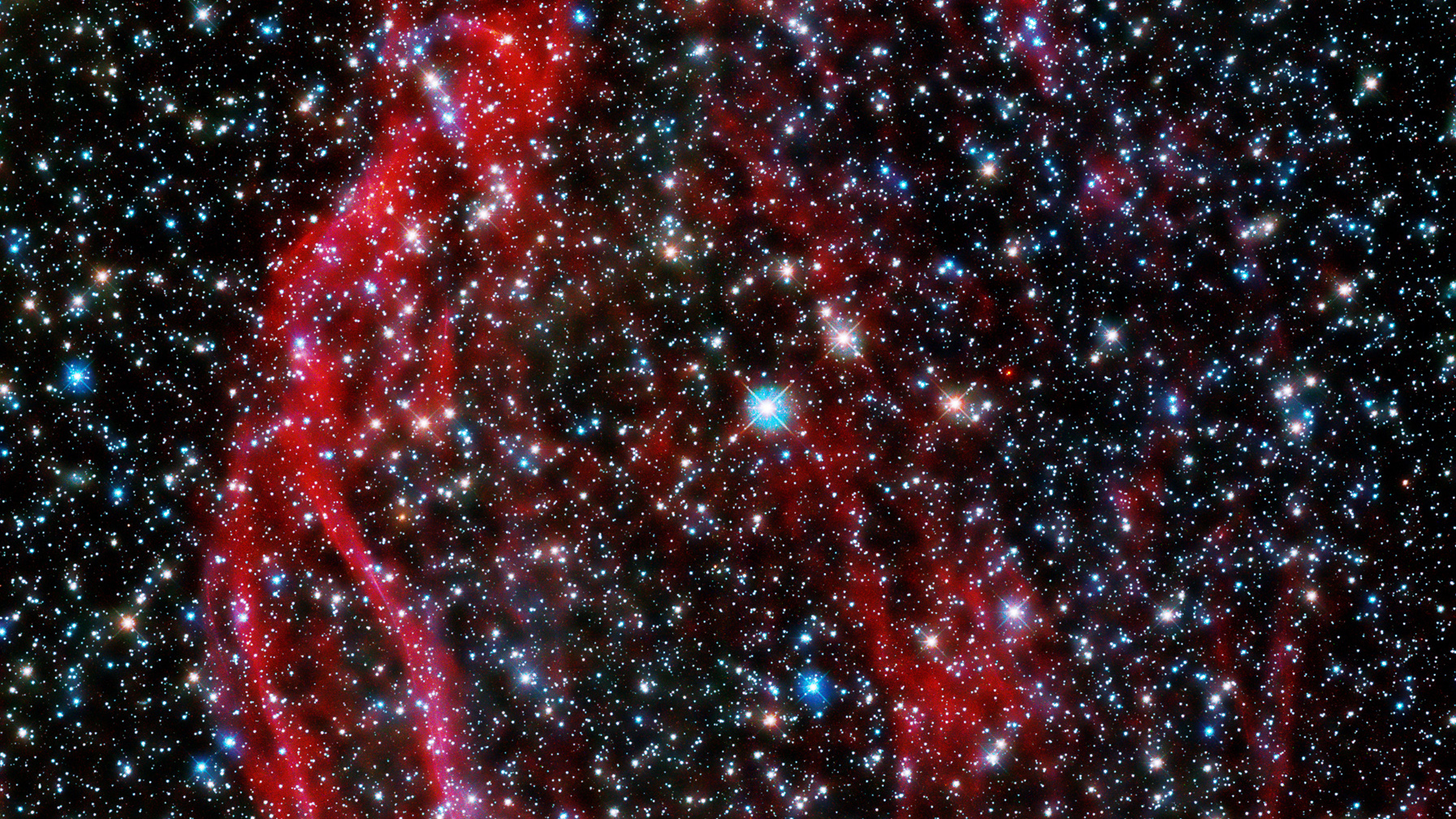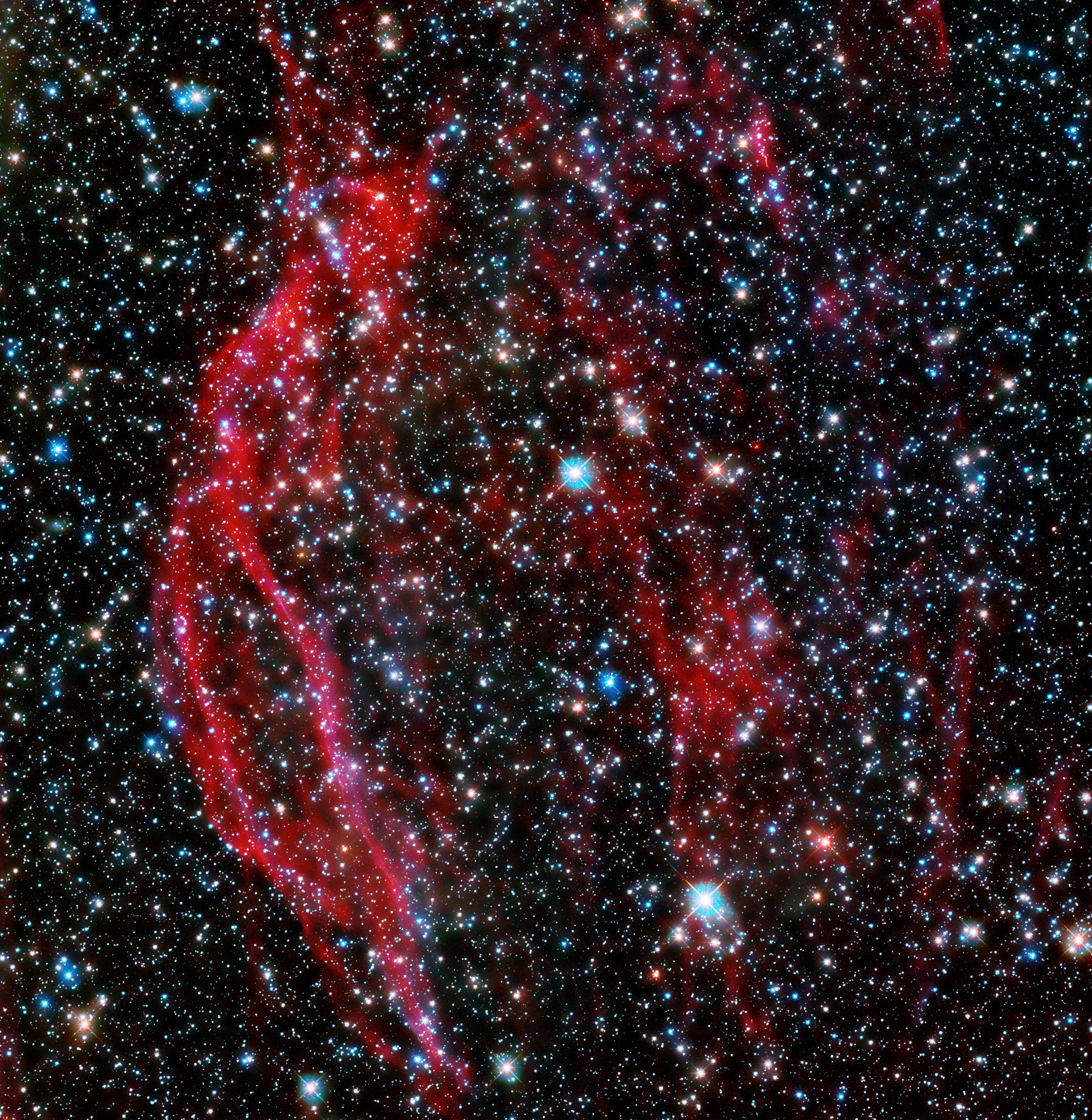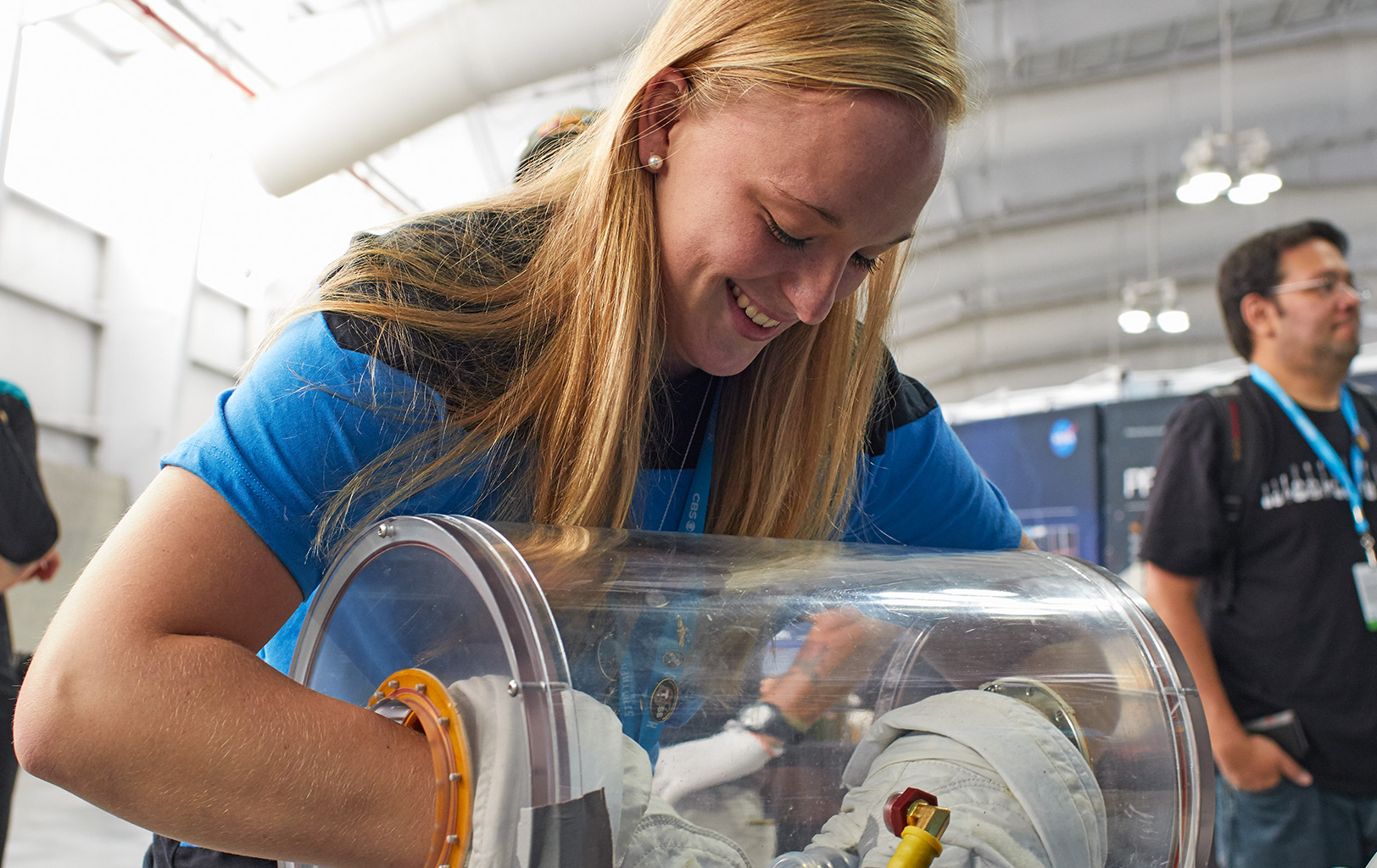Hubble telescope captures cosmic remains of unusual white dwarf supernova

The shredded remains of a stellar explosion glow bright red in a stunning new photo from the Hubble Space Telescope.
The vibrant cosmic ribbons of gas are the result of an explosion of a white dwarf star that reached the end of its life, also known as a Type 1a supernova. This supernova remnant, officially known as DEM L249, is located in the Large Magellanic Cloud (LMC), which is a satellite dwarf galaxy of the Milky Way and among the closest galaxies to Earth.
Hubble snapped this new photo of DEM L249 while surveying the LMC in search of surviving stellar companions of white dwarf stars that had already exploded, according to a statement from NASA.
Related: Supernova photos: great images of star explosions

"White dwarf stars are usually stable, but in a binary system — two stars orbiting each other — a white dwarf can gravitationally pull so much matter from its companion that it reaches critical mass and explodes," NASA officials said in the statement.
DEM L249 is a particularly unusual supernova remnant, believed to have been a massive and relatively young white dwarf star when it met its demise.
Using NASA's Chandra X-ray Observatory and the European Space Agency's (ESA) XMM-Newton space observatory, astronomers found that the gas of DEM L249 was hotter and shone brighter than remnants of other Type 1a supernovas.
Get the Space.com Newsletter
Breaking space news, the latest updates on rocket launches, skywatching events and more!
Therefore, given heavier stars expel more gas, the white dwarf star that created DEM L249 is believed to have been incredibly massive when it exploded. In turn, the star would have died earlier in its lifecycle, according to the statement.
Follow Samantha Mathewson @Sam_Ashley13. Follow us on Twitter @Spacedotcom and on Facebook.
Join our Space Forums to keep talking space on the latest missions, night sky and more! And if you have a news tip, correction or comment, let us know at: community@space.com.

Samantha Mathewson joined Space.com as an intern in the summer of 2016. She received a B.A. in Journalism and Environmental Science at the University of New Haven, in Connecticut. Previously, her work has been published in Nature World News. When not writing or reading about science, Samantha enjoys traveling to new places and taking photos! You can follow her on Twitter @Sam_Ashley13.









